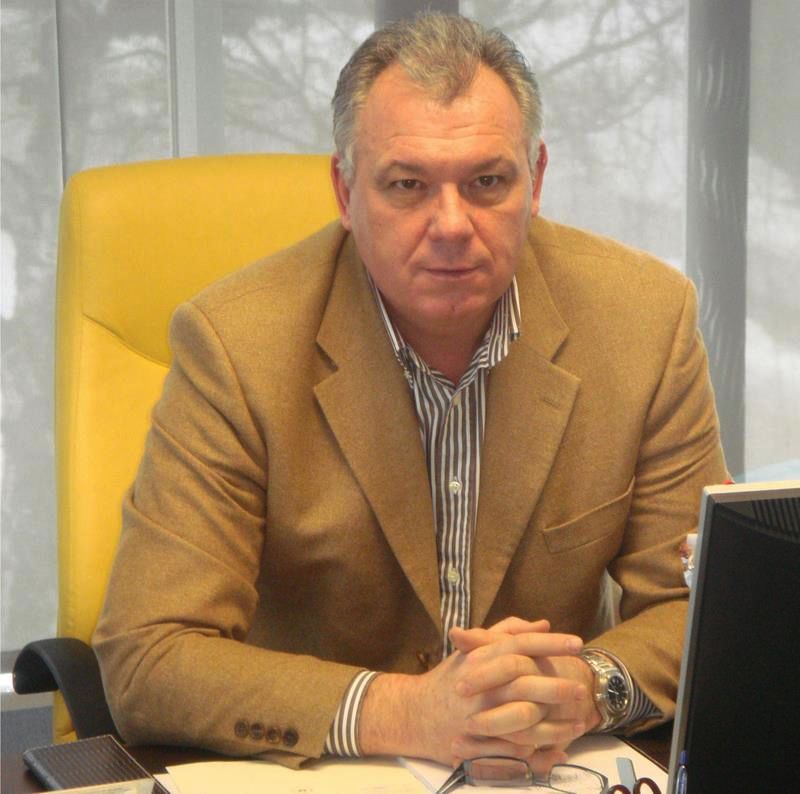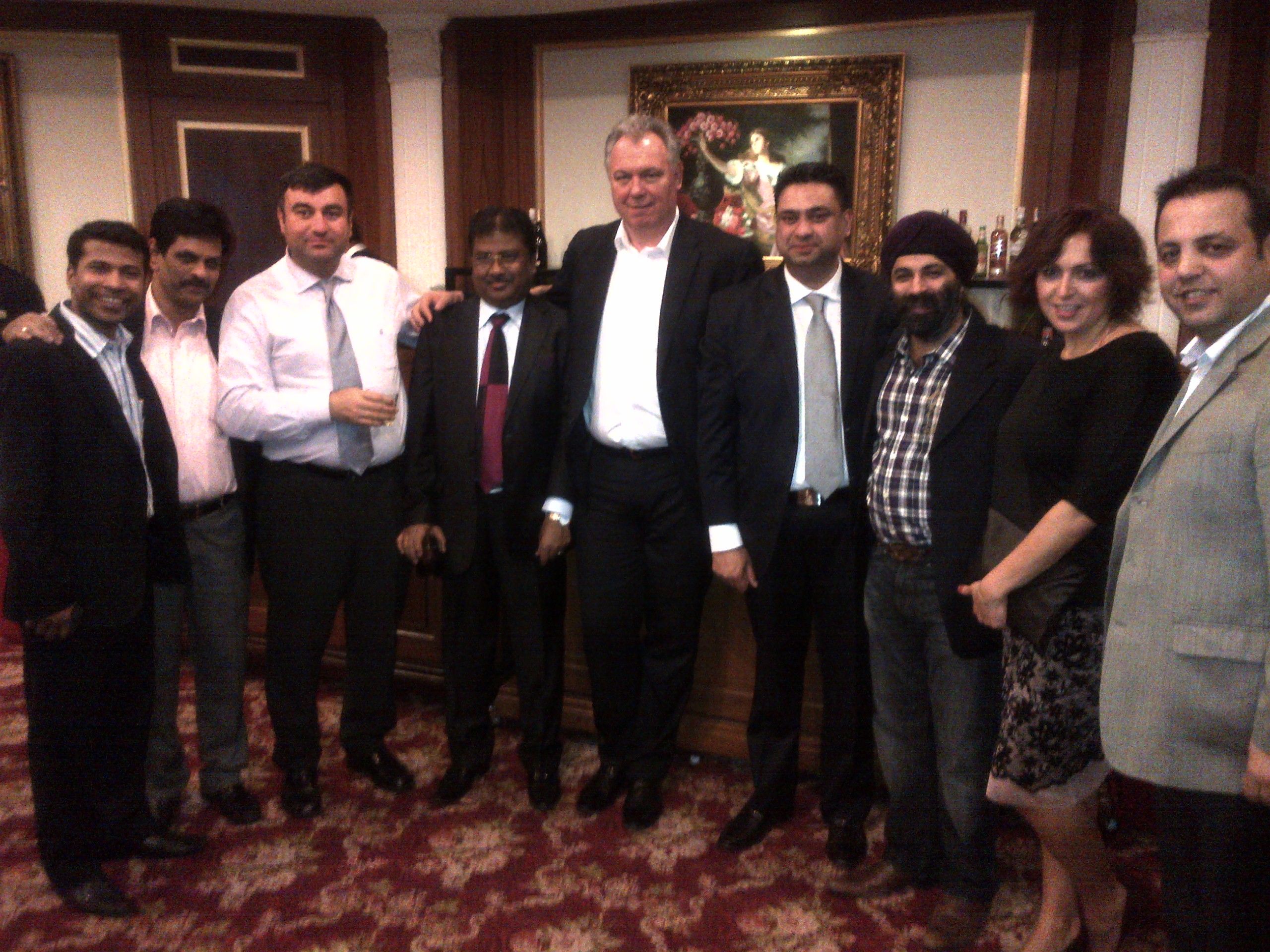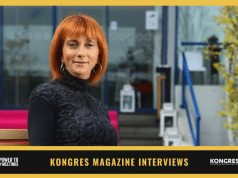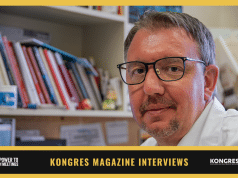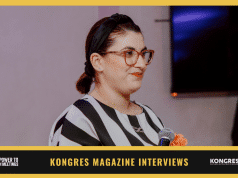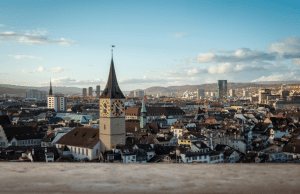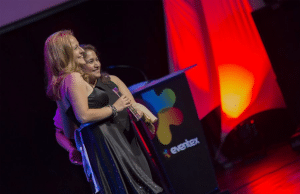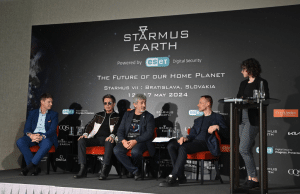NO FASHION WILL CUT THE STANDARD VALUES
Partner’s trust is not obtained from the activity on social networks nor through internet sites.
1. Who is Tone Matjašič and what would he be doing if he didn’t land in tourism?
After 37 years of working in the tourism industry, this is a very difficult question to answer. I think that a man does not wander into a working area just by accident. Never in those years did I even think about anything else, and certainly I do not want to do anything else. Sadly, I am now more concerned with matters that I do not look forward to: finance, human resources, but this is a necessary and inevitable part of life.
2. What is the status of meetings industry in the region of South-East Europe today? Is this still one of the most promising sectors of tourism?
I certainly believe that meetings industry is one of the segments of tourism in the region that has great potential. The state of the facilities is improving, the recognition and visibility of the region grows, and also increasing is the number of excellent event organisers.
3. Have you recently noticed something around you that has inspired you or upset you in the tourism sector?
The feeling of satisfaction was most recently at its greatest at the end of August, when we successfully completed this year’s second charter from Japan to Ljubljana Airport, and of course the whole travel programme for guests. Sad at the recognition that when the state years ago subsidised the arrival of the same charter flight there was a press conference at the airport with the minister at the helm. Now that this is done in our company we have not even received souvenirs from anyone (city of Ljubljana, Spirit Agency) that would remind the guests of our country. The exception, as usual, is Bled, which greeted the guests with a folklore programme.
4. In your opinion what will the future bring for tourism? Even greater globalisation, or on the contrary will those who will be able to offer local specialties be successful?
In any case, a combination of both. Attractive local tourist attractions in conjunction with a good range of shopping of prestigious brands, or local cuisine with a lively evening life in the city. Combinations could be enumerated, but pledging allegiance solely to globalisation, or to the local offer, is not good for the marketing of the tourism product.
5. In today’s multimedia and interactive tourist world is it easier or harder to work?
Again, it is difficult to answer unequivocally. I am afraid that we have started to drown in the flood of media of all kinds, we are losing focus, we are developing a complete range of fronts, which are short-lived and have no future, they live only in the present. Personally, I think that no “fashion” will cut the standard values. A partner’s trust is not obtained from the activity on social networks, nor through internet sites. All this is necessary, but to find the right dosage is a challenge that we are dealing with every day.
6. How is meetings industry positioned in your strategy? In what direction will you develop it in Slovenia and in the region?
In our strategy, meetings industry is one of the emerging products. We have organised a number of very successful events in the region and in Slovenia and we will continue to do so. Of course, if we had the resources for the development of products and to support a necessary team all together, it would be easier. Funding a presence in foreign markets, opening up new markets and yet at the same time new products is a mouthful, so we have to stop moving and sadly look at how opportunities are passing us. At such moments I wish I lived in a regulated country that wants to have successful businesses, companies, creative entrepreneurs and smiling citizens.
7. What is the style of the Panoramic agency in the meetings industry? What do you think you are recognised for?
To our customers we want to offer the PANORAMIC service throughout South-Eastern Europe. At this I should also mention that we have two offices in Japan and in September we opened a representative office in Taiwan. Thus, we are approaching a comprehensive marketing of our products and our growth proves that it is a good strategy. With our companies in the region: Croatia, Macedonia, Serbia and Slovenia, of course, we act with one voice and on individual markets separately. This year we have organised events in every of the above listed countries, the year will end at the end of November with a four-day Congress of 300 French cardiologists in Belgrade.
8. What differentiates a good convention event from a truly great one? Is this subjective or are there rules for this?
Probably there are rules for those who are evaluating the organisation of the event. I would say that it is a really successful event when all the partners do their part perfectly. A great organiser of the event is useless if he or she has poor partners in the project, be it accommodation, dining, transportation …. The organiser is not really so great anymore if he or she can not choose the partners.
9. How satisfied are you with the activities of the Slovenian Convention Bureau? What do you miss?
Given that I’m not a very active member of the Slovenian Convention Bureau, I cannot complain about its activities. I can say that my colleague Kovačič is very responsive to any initiative, he is hardworking and congress tourism is running through his veins. Personally, to me, any such integration raises many questions. All bidders are also competitors, and here is a very thin line between partnership and competition. In recent years I have tried very hard to make Slovenian tourism-related workers agree and co-operate. Unfortunately in doing so I feel relatively unsuccessful, so I instead dedicate myself to the business of our companies.
10. Who is to blame for the eternal lack of recognition of Slovenia and how could it be improved?
It’s hard to look for guilty ones for the poor visibility, what I worry about at this time is the bad image of our country, for which I certainly blame our politicians. The President of the Republic shoots a private spot for the EC in basketball and when he goes abroad he does not speak a word of invitation to foreign guests who visit our country. Of course, it is the same with all the other politicians. I’m always “raised” when I hear about who our ambassadors are for tourism around the world, from sportsmen to cultural figures … On the profile of the country it affects the whole “look”. This means an orderly political system, a prosperous economy and, consequently, that such a country is friendly and recognisable to tourists.
11. What was this year’s tourist season like? Are you satisfied with the results?
This year’s season was 40% better than last year’s, but of course this does not mean satisfaction because we are present in 38 markets around the world. First and foremost is not the imperative of revenue growth, but expansion into new markets, an increase of the share in existing markets, and in particular to be recognised as a great DMC in Southeast Europe.
12. Is being one of the main players of tourism in the region a responsibility, a burden or pleasure?
To feel like one of the main players of tourism would be too confident and probably also a burden. In fact, I really enjoy what I do and I try to create a team that will be responsible and work for the satisfaction of our partners, a major player on this parquet.
